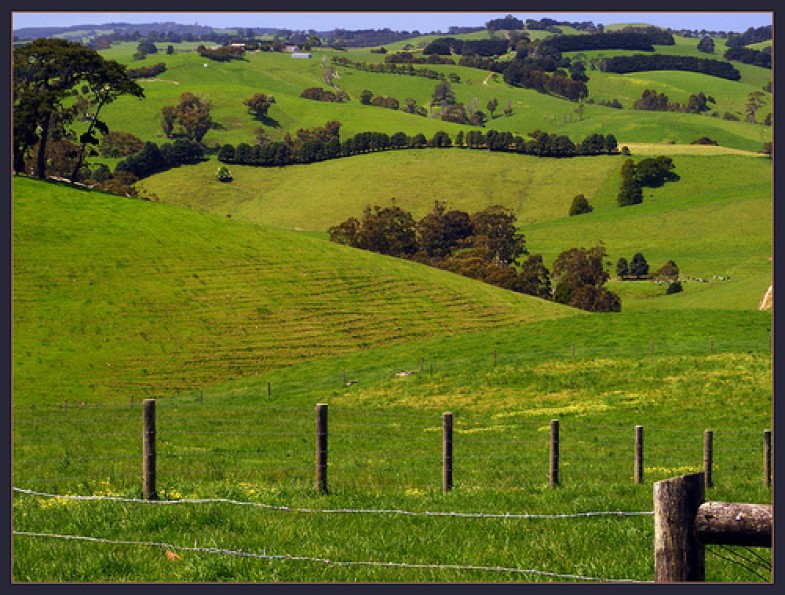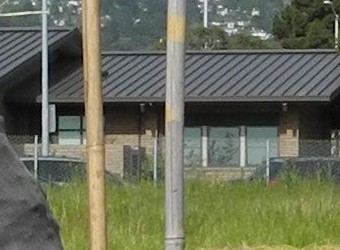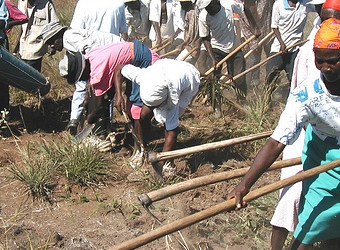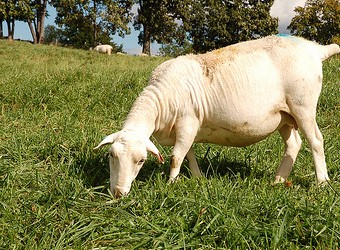In his opening remarks at the launch of the national Slow Money Alliance in Santa Fe this past September, socially responsible business activistWoody Tasch used the startling phrase “completing capitalism” to refer to the way in which Slow Money is meant to complement and transform rather than do away with current economic practices.
For me this phrase evokes a sense that the evils of capitalism are not caused by anything inherent in capital itself, but rather by the primitive means and structures that govern how capital is created, distributed and manipulated in our current system.
The next day at the conference, I suggested that this completion of capitalism could be accomplished only if we also “liberated land from the market”. I want to explain what I meant by that provocative statement.
The idea is actually rather simple: Land is not a commodity! Think about it. Human beings did not grow the land or create the land. It is a gift given by the universe to all of us.
When we buy and sell land we are really buying and selling certain rights of use to the land, rather than the land itself. And rights are always balanced by responsibilities. Therefore, having the right to a certain piece of land should always come with specific responsibilities, such as social, economic and environmental stewardship. When we begin to understand this, we will begin to structure our economy and our laws differently.
The consequences of treating farmland as a commodity are tragic. Consider the following: When capital is used to buy farmland under the current systems, that capital becomes unproductive. This is because that capital has not been used to bring anything new into existence, which is the ultimate mission of capital. The land is still farmed as it was before. What does happen is that the land becomes more expensive. Because the capital is tied up in it, the land values appreciate and the farm rents rise. Farmland thus becomes less and less affordable to farmers.
The value of the land is no longer tied to what a farmer can pay, but rather to what an investor can pay. This, in turn, leads to the rampant conversion of farmland into subdivisions and other development, the results of which we witness every day in the loss of beauty, productivity and biodiversity from our landscape .
Unfortunate consequences come from treating farmland like a commodity:
• Farmers are not able to afford farmland;
• Farmers cannot afford to be good environmental and social stewards;
• Farmland is gobbled up for development;
• The biodiversity of the landscape is diminished;
• Less capital is available for productive economic activity;
• Community life and food quality suffers.
A transformation in how we think about the land will only happen gradually, but we must start now to pioneer a new approach??” to think of land, even privately-owned land, as a commons that should be tended with the best interests of the earth and the community in mind.
That’s the purpose of a new project I am involved with, New Spirit Ventures, LLC??“which aims to show that it’s possible to free land from the market, using the very thing that has caused so much trouble for farmland in the first place??“private capital!
New Spirit Ventures, LLC is dedicated to a radical social agenda, namely to use private capital to:
• Free land from the market;
• Increase farmer access to the land;
• Enhance environmental stewardship of the land;
• Increase the biodiversity of the landscape;
• Increase the number of farmers on the land;
• Free farmers to capitalize their businesses rather than their land.
In order for a restorative economy to emerge, in order for local economies to flourish,
we must gradually transform our thinking and behavior about land.
This is not a proposal for the overthrow of capitalism or our government. Quite the contrary, this is a formula for the transformation or “completion of capitalism” through the willing cooperation of farmers, investors and entrepreneurs who wish to pioneer the future.





